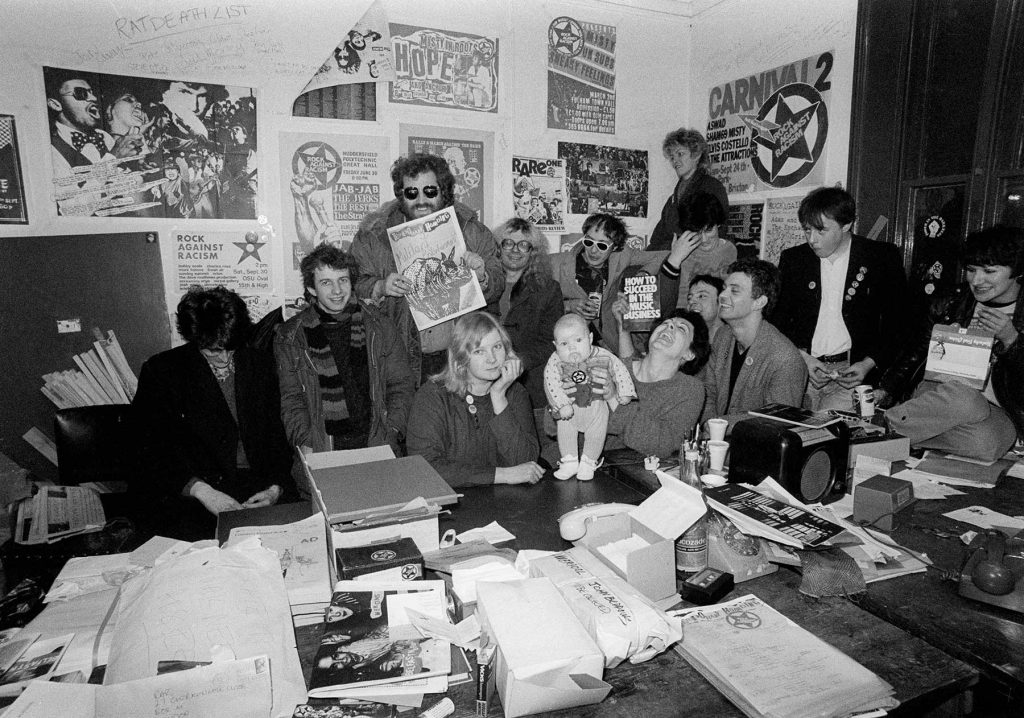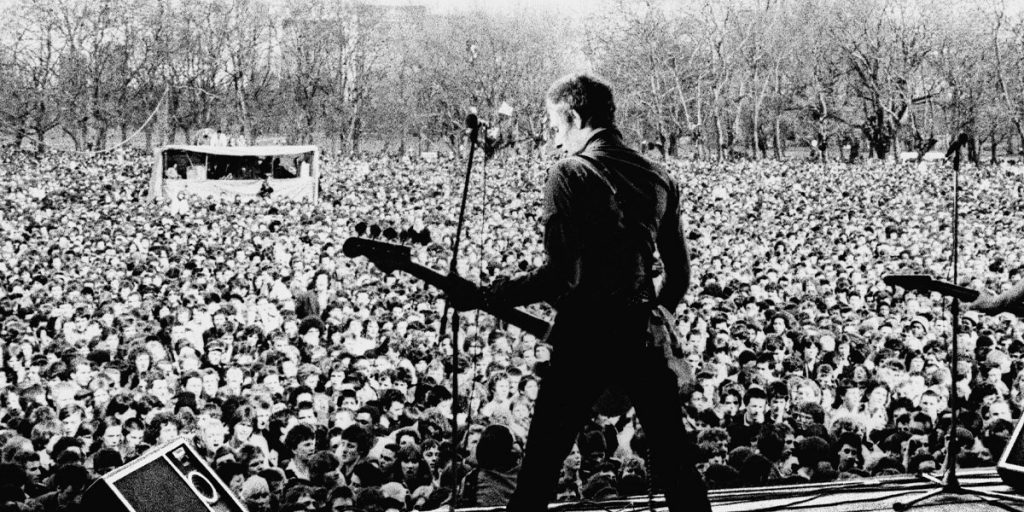White Riot ’s punk aesthetic and uncontrollable ethos shows us why the fight against racism is far from over and, through music, a lot more political action can be done than thought.
“Do we have any foreigners in the audience tonight? If so, please put up your hands … So, where are you? Well, wherever you all are, I think you should all just leave. Not just leave the hall, leave our country … I don’t want you here, in the room or in my country. Listen to me, man! I think we should send them all back. Stop Britain from becoming a black colony. Get the foreigners out. Get the wogs out. Get the coons out. […] Throw the wogs out! Keep Britain white!” This exact transcript of speech was what made photographer Red Saunders pick up his pen and write a heartfelt letter to the music press, calling for rock to be a force against racism. For anyone not recognizing these words, they were spoken on 5th of August 1976, by renowned blues and rock musician, Eric Clapton. He encouraged his fans to support the Conservative MP Enoch Powell, you know, the one from the ‘Rivers of Blood’ speech (if you don’t know look it up!) given in the same town of Birmingham, UK. ‘Keep Britain White’ being also, not so coincidentally, the slogan of major political party the National Front.
Also, “Britain is ready for a fascist leader,” David Bowie is quoted as telling Playboy in May 1976. This was around the time he arrived at London Victoria station and reportedly gave a Nazi salute to waiting fans (a gesture Bowie always denied making). Sick and tired of musicians supporting hate speech and crime, the Rock Against Racism movement was born, and its manifesto (written by David Widgery in 1976) was: “We want rebel music, street music. Music that breaks down people’s fear of one another. Crisis music. Now music. Music that knows who the real enemy is. Rock Against Racism. LOVE MUSIC HATE RACISM.” Though RAR disbanded four years after its organisation, LMHR still lives to this day and is still active in the Black Lives Matter protests. Saunders said on the RAR’s main objective: “Our job was to peel away the Union Jack from the swastika.”
The campaign starts in a print shop in East London and centres on a fanzine, “Temporary Hoarding“, which features interviews and articles on racism and immigration, as well as other controversial issues of the day such as The Troubles. Without mobile phones and social media, this grassroots protest is on the streets – through pamphlets, posters, and concerts that featured reggae as well as punk bands, black alongside white. As ‘Irate’ Kate Webb, who replied to the letters flooding RAR, said, “we were trying to get people to understand racism as a white problem.” White Riot certainly personifies that message: in an age where Black Lives Matters are again more relevant, it is saying we have been here before, and repeatedly.

Rubika Shah’s award-winning documentary White Riot is not only factual, accurate and consisting of a plethora of first-hand interviews, it also manages to embody the vibe of the mid-70s – the raw, screaming anger and activism that permeates the Rock Against Racism movement and it most famous bands – The Clash, Steel Pulse, X-Ray Spex, Alien Kulture and the Tom Robinson Band. Though the main focus is on the movement’s anti-racism actions in the forms of gigs where (mostly white) punk and (mostly black) reggae bands play side by side, the Temporary Hoarding fanzine also focuses on issues of gender and sexuality and its expression, with tips on how to bring these subjects to the kitchen table. The cut-and-paste style of the fanzine is clearly taken as inspiration for the overall form of the film itself. With a razor-sharp edge, archival footage alternates the interviews with the original Temporal Hoarding editorial team, as we learn of not only RAR’s beginnings and fights, but also the hostile UK environment created by political far-right party the National Front and Conservative MP Enoch Powell.
Two years of gig and fanzine-based activism, aka ‘militant entertainment’, come to an ultimate high with the triumphal free Carnival Against Racism mini-festival in April 1978. Thousands of people (42 buses came from Glasgow alone!) came together in Victoria Park, the hotbed of the capital’s most racist agitation, to participate in a massive middle finger against neo-nazis, and skinheads, and anyone who voted for the NF’s Martin Webster, or refused to be aware of constitutional household whitewashed racism. In these years without social media, posters, and flyers, the fanzine lit up a rebellious ethos in white UK which spread like wildfire. White Riot is not a film about youth identity, the politics of punk music or even social activism – it is about the scary far-right world of the UK in the mid-70s which bears eerie similarity to the present day, even if we’re too close to it to see it. In showing what the far-right looked like 40-odd years ago, we might get some solutions on how to fight back.
White Riot does not feel like a nostalgic period piece but is pulsating with adrenaline and a blinding energy that calls for actions. Like the many protesters in 1978, we, too, want to join the march against racism. The overall eighties punk style, slick swift editing, raw footage and retro-styled animations smoothly connect factual history with emotive activism. It is controlled anger, decanted in an effortlessly watchable format that manages to present the wild years of the mid-seventies with grace and dedication. White Riot shows us a way out of a (far-)right future, a hope that can be found through music. The music might be different, but the lyrics stay the same.
White Riot will be released in cinemas across the U.K. and Ireland from Friday, 18th September 2020.

